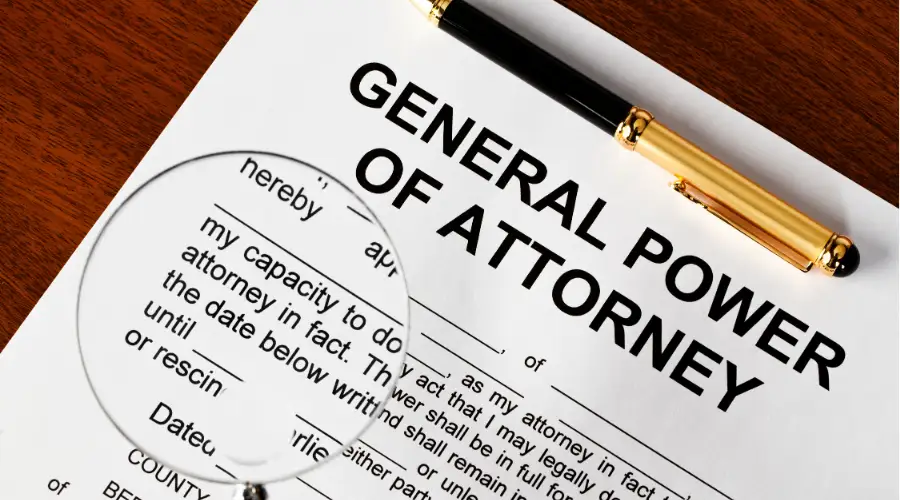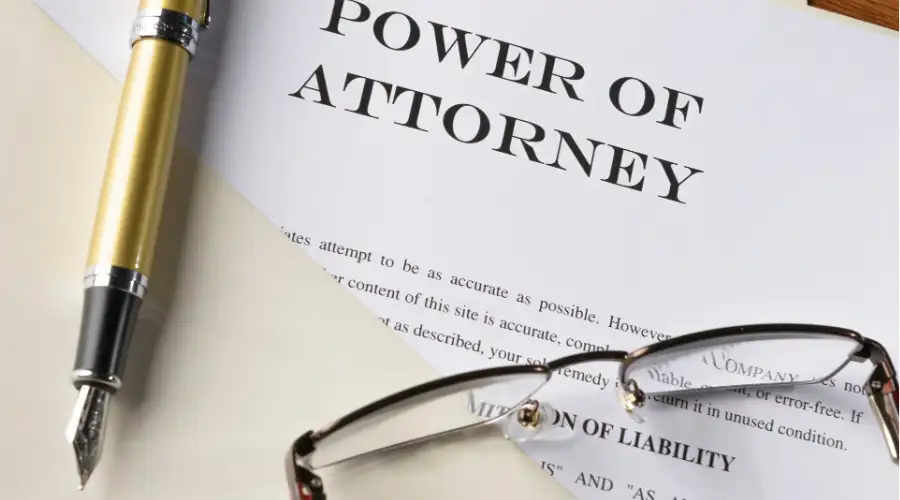General Power of Attorney (GPoA) and Special Power of Attorney (SPA) are two widely used types of Power of Attorney (POA). Understanding the differences between them is necessary before you delegate such authority. This blog provides the details regarding the differences between the two main types of power of attorney, i.e, General Power of Attorney and Special Power of Attorney.
What is a General Power of Attorney (GPA)?

A legal document that can provide someone the power to make decisions on behalf of you when you are not available/ unable to do so by yourselves is called a general power of attorney. This power of attorney can be used in various situations, it may be if a person is unable to travel or if a person is a minor or if they are incapable.
Before the creation of a general power attorney there are some things that you must understand. That is a person needs to get all the documents that are needed for supporting the claim, like identification cards, residential proof and any other means that can help in proving the identity and authority. After gathering all the information, a person needs to complete the process of filing the form, namely application, for grant of general power of attorney. This application must be filed in the proper government office.
After your application has been processed, you need to provide the documents for verification that you have given the power of attorney to the person you choose. Some other documents—like a lawyer’s letter or doctor’s letter to confirm that the person is incapable or unable to make their own decision—are also necessary.
What is a Special Power of Attorney (SPA)?

Special power of attorney is a device that can allow one to act on behalf of another person only during specific circumstances. The person who is granted a special power of attorney can only make decisions regarding particular aspects on behalf of the person who has granted this power, and the power cannot be utilised for other decisions.
Differences between General and Special Power of Attorney
| Features | General Power of Attorney (GPoA) | Special Power of Attorney (SPA) |
| Scope of Authority | Broad and comprehensive authority for various purposes. | Limited to specific actions or transactions. |
| Purpose | Used for a range of general or unspecified activities | Typically used for a specific and well-defined purpose |
| Duration | Can be enduring until revoked or until the principal’s incapacity | Often has a specified timeframe or is event-specific, ending when the task is completed |
| Applicability | Useful for situations where the principal wants the agent to handle multiple affairs | Applied when the principal wants someone to act on their behalf for just a specific matter, which may not be their subject of expertise. |
| Examples | Managing financial affairs, business transactions, real estate dealings | Buying or selling property, legal proceedings, financial transactions |
| Customisation | May cover a wide range of activities, providing flexibility | Can be tailored to meet the specific needs of a particular transaction |
| Revocation | Revoked when the principal dies, becomes incapacitated, or explicitly revoked it | Typically revoked automatically after the specified task is completed or upon principal’s revocation |
| Common Use Cases | Long-term financial management, business operations | Short team real estate transactions, legal matters, business deals |
| Flexibility | More flexible as it covers a wide range of activities, suitable for ongoing management | More restrictive and less flexible, ideal for one-time or short-term needs |
| Risk of Abuse | Higher risk due to the broad scope of authority, which could lead to misuse | Lower risk as authority is limited to specific tasks, reducing potential for misuse |
| Control | Principal relinquishes significant control, which may be unsettling | Principal retains more control over overall affairs, beneficial for specific tasks |
| Revocation Process | More complex, cumbersome, and time-consuming to revoke | Easier and simpler to revoke once the specific task is completed |
| Potential for Overreach | Agent may overstep and make decisions beyond what the principal has scoped | Limited scope reduces potential for overreach by the agent |
| Oversight | Difficult to oversee the agent’s decisions, which may lead to mismanagement | Easier to monitor and manage due to the limited scope of authority |
| Convenience | Centralising authority in one document is hassle-free for ongoing needs | Requires multiple SPAs for various tasks, which may be cumbersome to manage |
| Streamlined Decision-Making | Allows the agent to act without verifying specific powers for each action | Limited authority may cause delays if the agent encounters situations outside their designated power |
Why Might You Need a Power of Attorney?
A power of attorney is an important legal document that can give permission for someone else to act on the behalf of you in various situations. This is very important if you are unable to make the decisions by yourself due to physical or mental incapability. A power of attorney can be categorised into general power of attorney and his special power of attorney. In case of general power of attorney, it gives the appointed person to have most of the permission to manage almost any task and not mostly restricted by law. That task ranges from handling financial transactions to making decisions that are related to your property. Meanwhile, a special power of attorney is a very focused document that will provide permission only to perform some specific task. For example, a special power of attorney may allow someone to manage their finances like money withdrawal from the bank account or to make any healthcare decisions or to buy a property.
There are various situations where a power of attorney must be needed. That is, if you are incapable of making any decisions, then the power of attorney can make sure that someone that you trust can help you in managing your affairs. It can also be advantageous in situations where you need someone to handle your specific business, access your assets or represent you legally in the court. In this case, the power of attorney will aid you with having peace of mind as you know that your matters will be handled by another person efficiently.
Laws for Both Types of POA in India
In India, both the central power of attorney and special power of attorney act as legal devices that can help you in appointing someone else to act for you because of a special situation.
The creation of a general power attorney or special power of attorney involves only a few steps in India. Initially, you need to find a lawyer who is registered and authorised to practise in India. They will then help you in completing the application forms that include the details about the agent as well as the individual and the main reason for giving this authority.
Conclusion
In India, there are mainly two types of power of attorney namely, general and special. A general power of attorney is to give someone else permission to make decisions on his or her behalf regarding different matters, if the original owner is not capable of doing so for any reasons. Special power of attorney is about allowing someone else the power to make decisions regarding specific matters. Both of these are very important in the legal realm, especially for senior citizens or specially abled people who may not be able to make independent decisions.
FAQs
GPA covers a wide range of responsibilities, while SPA is limited to specific tasks, giving the agent authority only in clearly defined areas.
Use a GPA when you need someone to manage multiple aspects of your life, especially if you’re unavailable for an extended period.
An SPA is ideal for one-off tasks, such as signing a legal document or handling a specific financial transaction when you are travelling or are temporarily incapacitated.
Yes, a GPA can grant someone the power to make healthcare decisions on your behalf, depending on the terms outlined.
Typically, yes. An SPA usually ends once the specific task or event it was created for is completed.
In India, it’s often advisable to have a GPA notarized and witnessed to ensure its legal validity.

